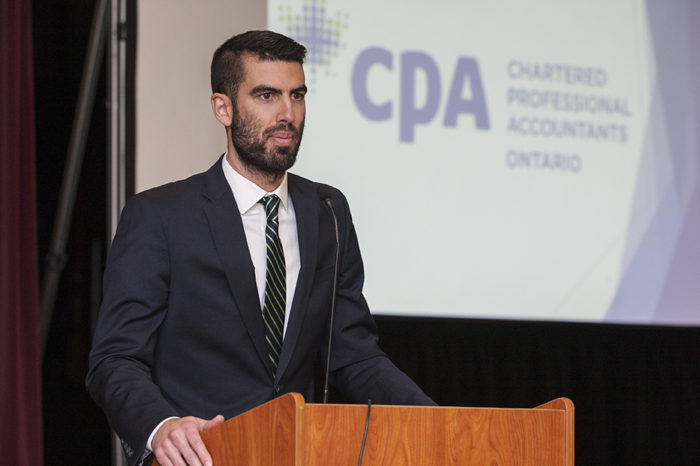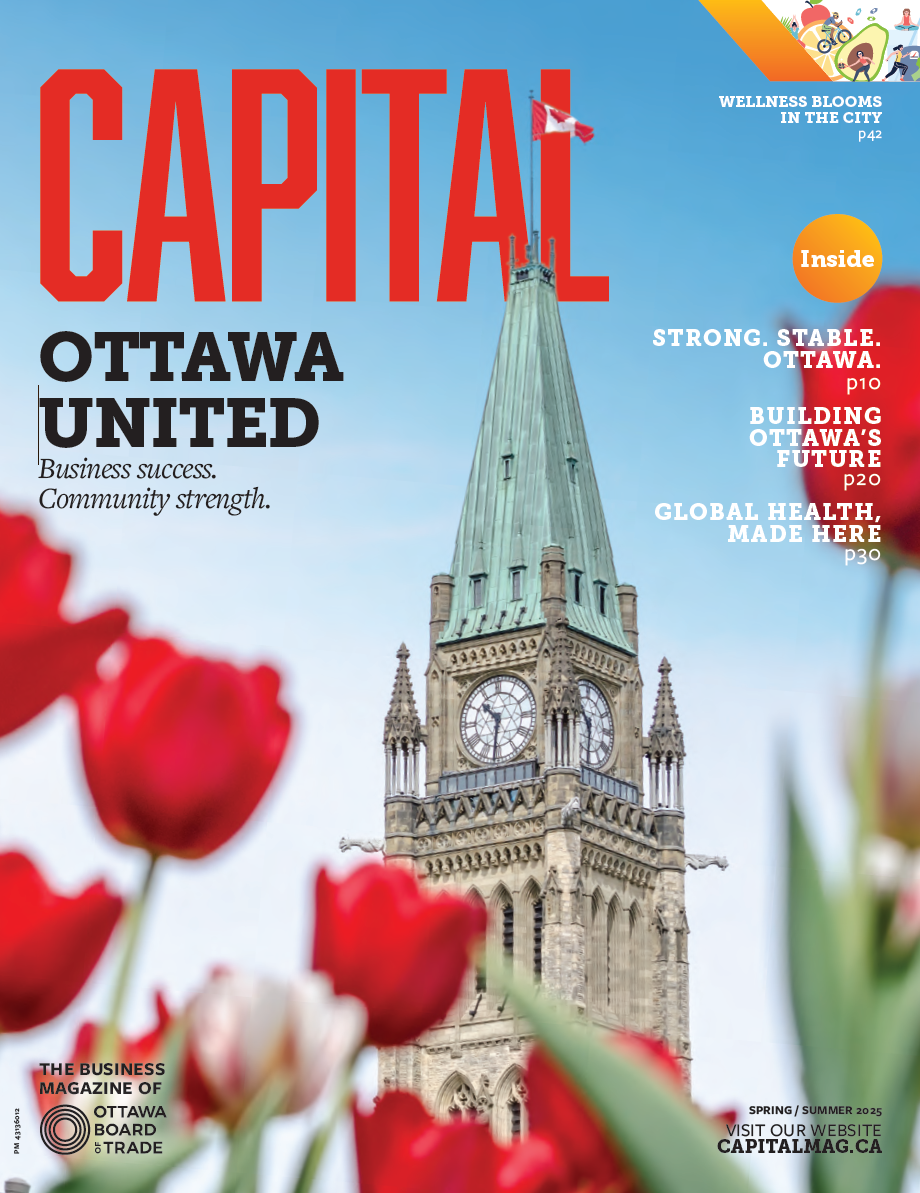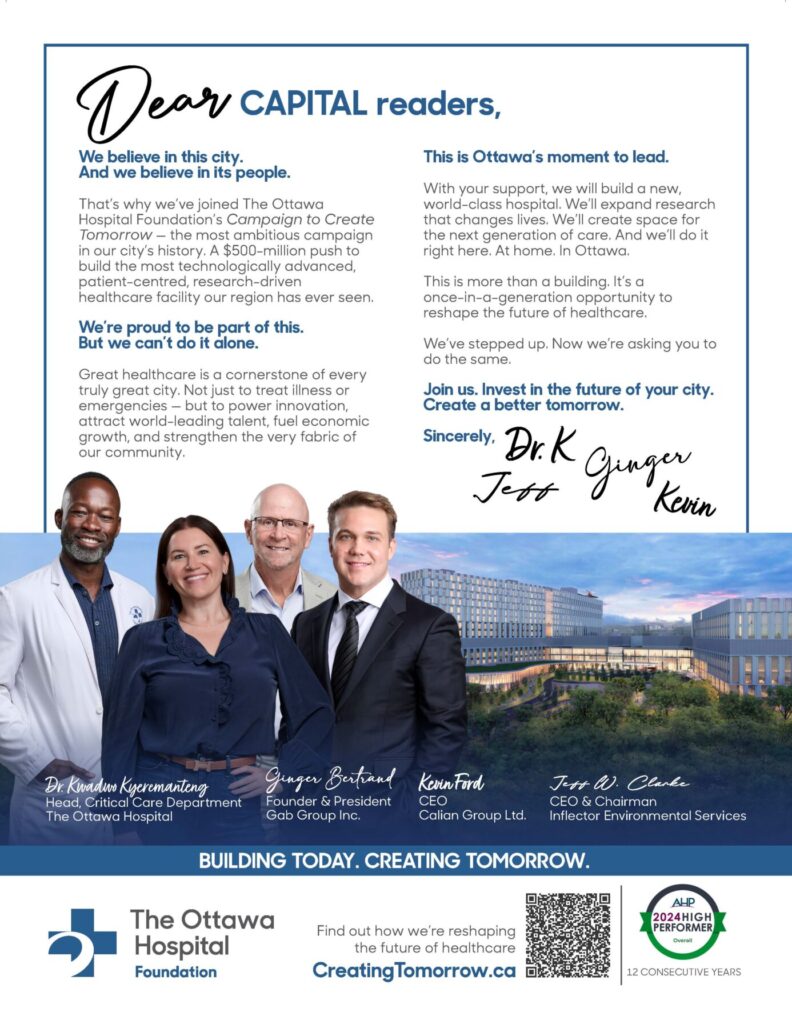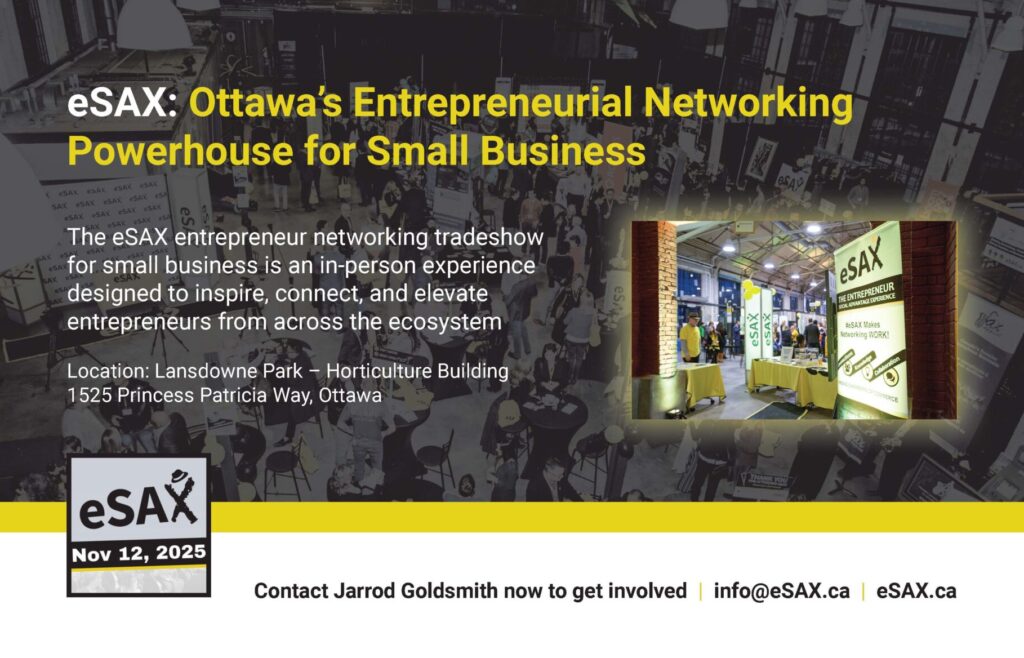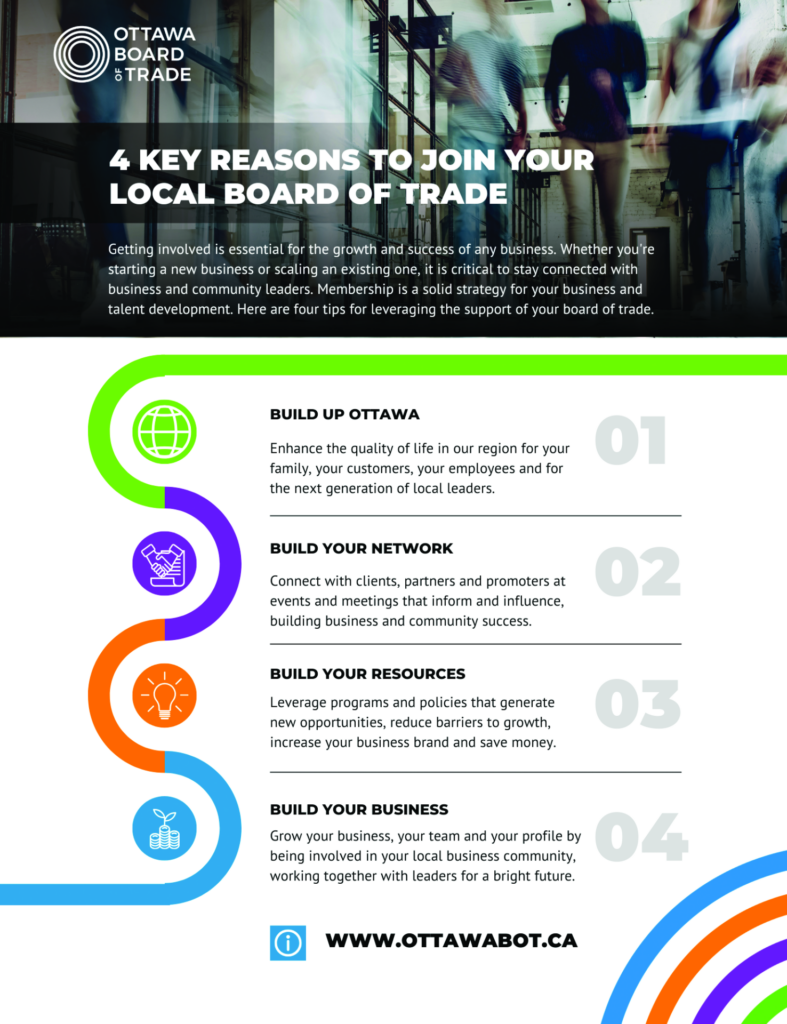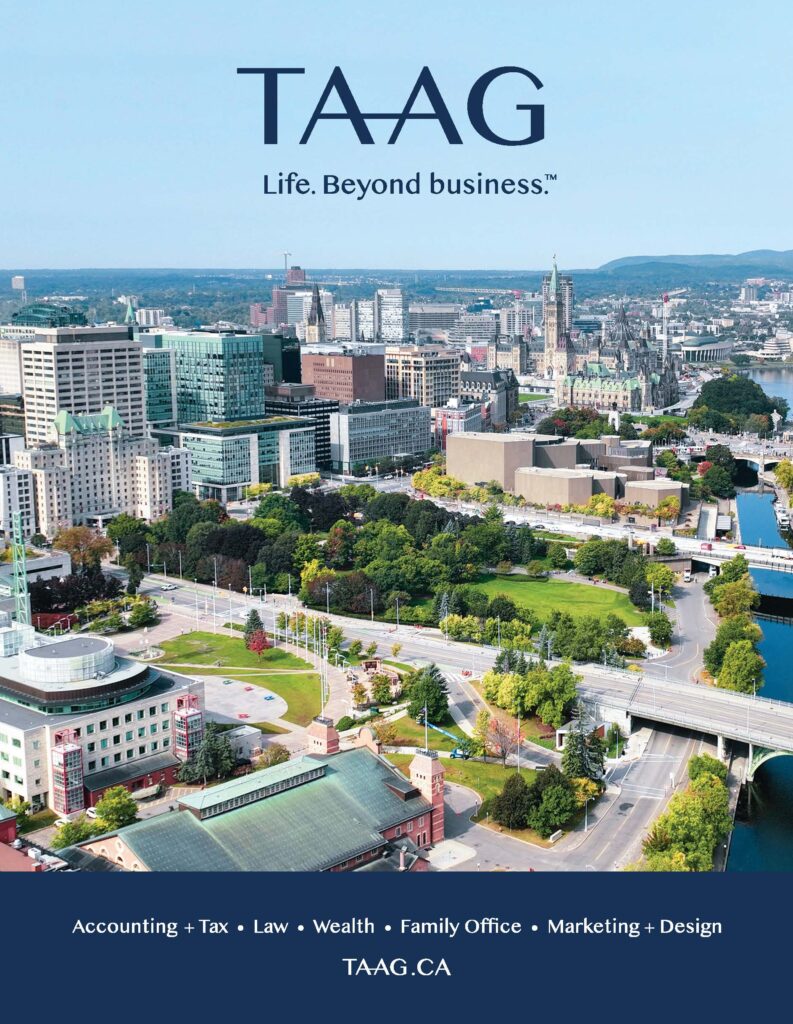Feature – Tackling the Talent Gap
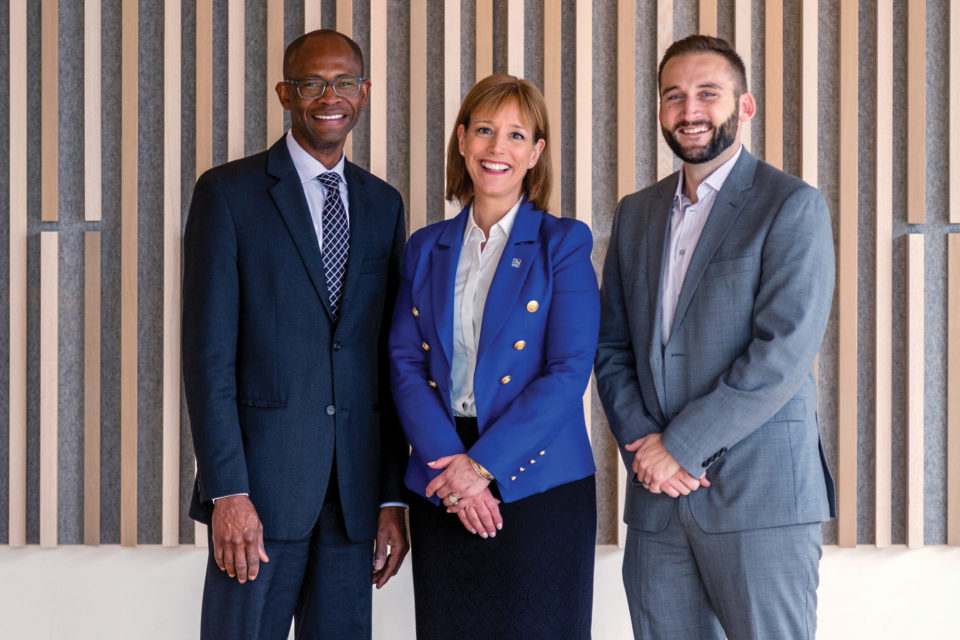
From left to right Henry Akanko, Marjolaine Hudon, and James Baker
By Jennifer Campbell
“Canada, we have a problem.”
So says David McKay, president, and CEO of Royal Bank of Canada in a report titled Humans Wanted. He’s writing about the fact that the next generation is entering the workforce at a time of rapid change in Canada and the young people who will inherit the challenge of dealing with the change aren’t ready for it. “Too many have been trained for jobs that may go away, rather than [being] equipped with skills that will be ever more valuable,” he writes.
To see how Ottawa’s tackling this challenge, we spoke with three professionals from the front line: One who knows she needs talented young people now, one who hunts talent for a living and a third who has a clever way to fill some of the gaps.
RBC’s approach
The gap between students’ qualifications and the jobs available worries Marjolaine Hudon, regional president for the Royal Bank of Canada. After studying the problem, RBC committed $500 million over the next 10 years to run its RBC Future Launch program that will address these challenges head-on.
One initiative—Career Launch—gives recent university graduates six months of work in an RBC branch and three more months with a not-for-profit organization, during which time RBC pays their salary.
“The not-for-profits benefit and the young person gains as well,” Hudon says.
After that, they return to RBC for three more months’ worth of work experience in a more specialized area of banking.
RBC also runs a program for Olympians, allowing them to train and work for RBC at the same time, with flexible hours to fit their training schedule.
“We work with Michael Tayler, who is an Olympic kayaker from Ottawa,” Hudon says. “When he retires from his Olympic career, he will have gained work experience that will help him transition.”
Tayler is thankful for that.
“For athletes, retirement from sport and the transition to a career can be a major challenge,” Tayler says. “RBC’s Olympians Program has helped me prepare for a career while I’m still competing.”
In Ottawa, RBC has spent $1 million on skills development for youth. Its employees volunteer their time to deliver hands-on workshops on personal branding, resumé building and networking through community organizations.
Maybe it’s time for Talent Ottawa
James Baker and his wife, Donna, launched Keynote Group Executive Search and Recruitment four years ago after discovering that Canada had a “broken recruitment industry.” For each position, their team will talk to between 200 and 250 candidates, after which they’ll interview between 40 and 50 again and then re-interview the top 15. They then whittle that number down to a shortlist for the client.
Keynote also uses artificial intelligence as a way to stimulate business. For example, Baker uses it for predictive modeling, to determine turnover within an organization.
“A senior leader lasts between five and seven years so I can anticipate that change,” Baker says. “Anything we can do to anticipate change is helpful. Every talent challenge we have, from recruiting to onboarding, starts with a conversation. If we can use AI to facilitate the legwork, we can spend more time speaking face-to-face.”
A member of the board of the Ottawa Board of Trade, Baker is well aware that talent is one of the top concerns of Ottawa businesses, as borne out in a recent business survey. He thinks the city has to take the talent problem more seriously.
Anything we can do to anticipate change is helpful. Every talent challenge we have, from recruiting to onboarding, starts with a conversation.
“I’d like to see the city bring all of the key stakeholders together on the talent agenda,” he says. “Talent Ottawa might be a good way to describe it, in the same way we have Invest Ottawa and Tourism. Maybe we should try an umbrella organization or at least a think-tank of some description, where the key stakeholders from the city—large corporations, post-secondary institutions and those from the Employment Ontario side—come together and look at how we address this problem.”
He said the recent Talent Summit, an initiative from the Board of Trade’s talent committee, on which he serves, was a first step towards that idea.
Immigrants can address some of the talent gaps
Hire Immigrants Ottawa’s name boldly describes its mandate, which is to promote the integration of immigrants into the labour market.
“We support employers to adapt and create opportunities for immigrants and we work closely with our agency partners who provide support to immigrants,” says Henry Akanko, director of Hire Immigrants Ottawa.
The organization came about following two years of research on why Ottawa had persistent underemployment of highly skilled individuals when businesses were signaling an impending skills shortage. The research revealed a disconnect between the demand for talent and the supply.
He said the organization’s goals are still a work in progress, but he has seen a shift in attitudes of employers.
“One of the things we’ve been able to do over the last three years with the Ottawa Board of Trade was looking at business perceptions about immigration as a source of talent,” he says. “The numbers for those who have never hired an immigrant are high, but we’ve seen modest gains in the perception of the importance of hiring skilled immigrants for their own businesses, from a low of 43 per cent in 2017 to 53 per cent in 2019. But when asked how important immigrants are as a source of growth for the overall economy, the number is 83. So there’s a gap, but the increase to 53 per cent shows us our work is getting some traction.”
We support employers to adapt and create opportunities for immigrants and we work closely with our agency partners who provide supports to immigrants.
He said there’s ongoing awareness of the importance of immigration to labour-market growth. For some businesses, he says, the challenge isn’t in attracting talent but in creating a diverse and inclusive workplace. To assist with that, Hire Immigrants Ottawa provides training programs on cultural competencies and inclusiveness, among others.
He said SMEs tend to recruit through their networks and often immigrants aren’t on the radar.
“So we have programs that help these people connect to that talent pool,” Akanko says.
Jennifer Campbell is an Ottawa writer and editor. She has written for numerous newspapers and magazines and is currently the editor of Diplomat magazine.
